When we think of magic, most of us think of movies, video games, books, and fairy tales. We think of fiction. And we call magicians those who manage to conjure up the fiction of life enchanted – where more than what we call ‘natural’ is possible.
At best, we use the word figuratively. We speak of the ‘magic of love’ and we say Eric Clapton does ‘magic’ with the guitar. When no other word can describe a deeply mysterious and moving experience – we say magic.
But our modern notions of magic are a distant echo of a profound insight into the nature of reality. An insight that’s been part of human life for eons of forgotten history.
For our ancestors, magic was not just a figure of speech or a bedtime story. Nor was it some ‘supernatural’ oddity. On the contrary, magic for them was the foundation of their everyday understanding of the world.
Thus, to take a serious look at magic is not superstition or childish make-believe. Rather, it is a look into the wisdom of our ancestors. Wisdom that’s flown through the centuries of human history like a subterranean river – carving in its wake occult principles and practices. And the more of these traces we discover, the clearer we see the secret knowledge that has formed them. Knowledge our collective soul is desperately waiting for us to recover.
(You can watch the video version of this essay on YouTube.)
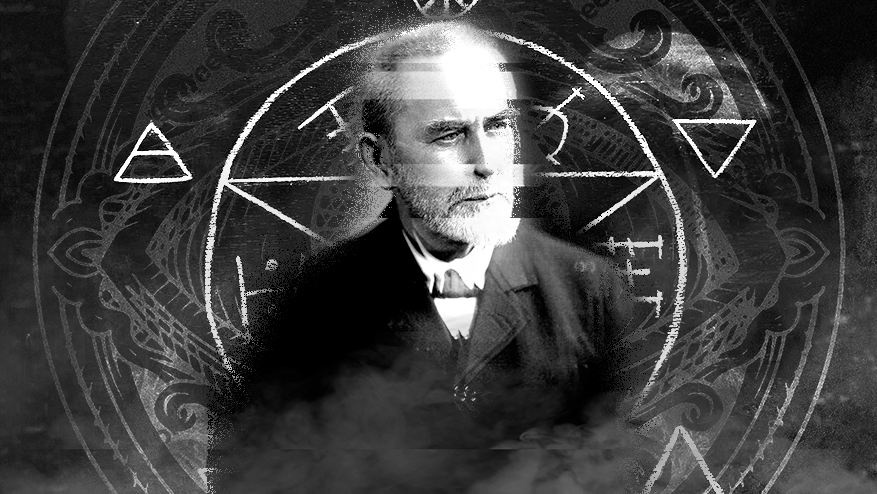
The Two Laws of Magic
In his monumental work, The Golden Bough, Sir James Frazer lays out an analysis of magic that has now become fundamental to anthropology. He points out two basic magical principles:
‘First, that like produces like, or that an effect resembles its cause; and, second, that things which have once been in contact with each other continue to act on each other at a distance after the physical contact has been severed.
‘The former principle may be called the Law of Similarity, the latter the Law of Contact…’
The Golden Bough, James Frazer
Voodoo dolls are the most popular example of the Law of Similarity. A doll with your likeness gives a magician power over you due to the mysterious resonance that links you with it.
And the Law of Contact is still widespread in major religions where the sacred remains of saints are venerated as sources of power.
But see how both these laws require a third, hidden law in order to work. They both require some mysterious medium through which objects can interact irrespective of their distance in space and time.
For example, in traditional hunting societies, a hunter would drive a nail in the tracks left behind by the animal he is stalking. He believes this magically freezes his prey in its tracks.
But what invisible channels allow the gesture of the hunter to produce an effect on his prey?
You see, magical thinking sees a dimension of reality where all objects, people, times, and places touch one another. Magic also sees the boundary separating the human mind from the natural world as porous and ultimately illusory. The world within and without naturally flow into one another and form a coherent, interconnected whole.
This whole, this dimensions where time and space, self and other melt into the elixir of the imagination is what today we call poetry.
But for a man of magic, poetry is not confined to the human imagination – it imbues nature. What we see today as impersonal elements and forces, he sees as conscious agents that commune with mankind.
A particular thought, word, or action – when performed at the right time and with the right intensity of emotion – becomes a spell. It enters the fabric of the world like a seed. This seed gestates in the rich soil of life and eventually shoots out into being. The world observes and listens to man carefully. And answers his calls.
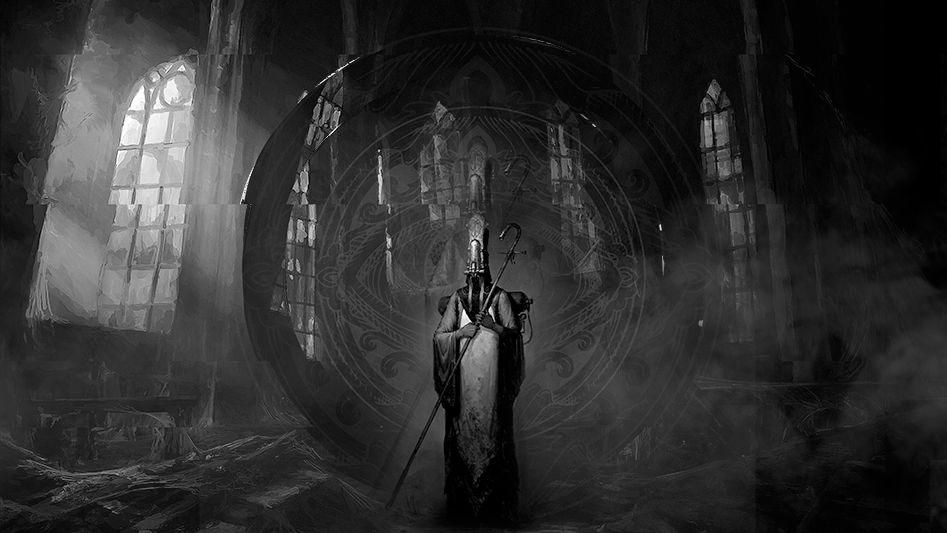
The Mass of Saint Secaire
Here is a striking example:
‘… Gascon peasants believe that to revenge themselves on their enemies bad men will sometimes induce a priest to say a mass called the Mass of Saint Secaire.
‘Very few priests know this mass, and three-fourths of those who do know it would not say it for love or money. None but wicked priests dare to perform the gruesome ceremony, and you may be quite sure that they will have a very heavy account to render for it at the last day. No curate or bishop, not even the archbishop of Auch, can pardon them; that right belongs to the pope of Rome alone.
‘The Mass of Saint Secaire may be said only in a ruined or deserted church, where owls mope and hoot, where bats flit in the gloaming, where gypsies lodge of nights, and where toads squat under the desecrated altar. Thither the bad priest comes by night with his light o’love, and at the first stroke of eleven he begins to mumble the mass backwards, and ends just as the clocks are knelling the midnight hour. His leman acts as clerk. The host he blesses is black and has three points; he consecrates no wine, but instead he drinks the water of a weIl into which the body of an unbaptized infant has been flung. He makes the sign of the cross, but it is on the ground and with his left foot…
‘But the man for whom the mass is said withers away little by little, and nobody can say what is the matter with him; even the doctors can make nothing of it. They do not know that he is slowly dying of the Mass of Saint Secaire.’
The Golden Bough, James Frazer
To Study the Past
Today’s scientific materialist would disregard the above as embarrassing superstition. But we may yet learn something from our ancestors if we give them a fair hearing.
When we study primitive thinking it is good to remind ourselves of our modern prejudices, which course through us as palpably as the blood of our mothers. Yet we should not abandon the virtues of our age either.
Rather, we may offer the discipline of modern rationality on the altar of human history. We may try to bring into the light of the intellect what our ancestors experienced in the nebulous depths of the heart. Depths to which, alas, we have become strangers today.
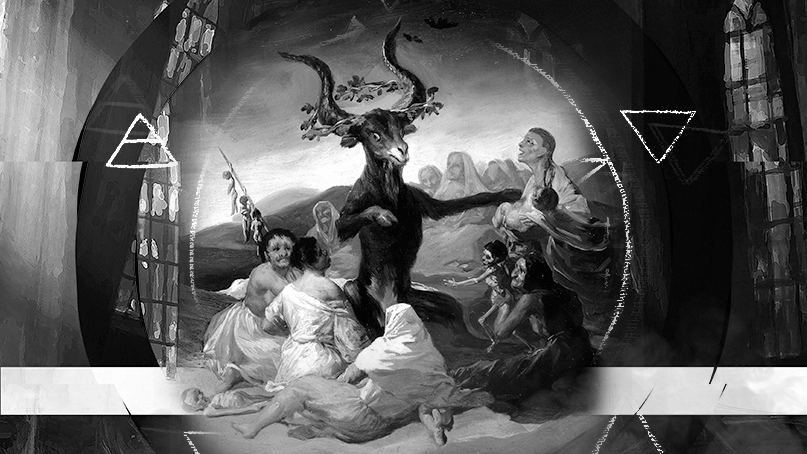
The Mechanics of Magic
Magic is much closer to science than it is to religion.
Like scientists, spell casters see the world as an integrated whole. Nature for them obeys concrete laws that can be understood and exploited to one’s benefit. To perform a spell is not a matter of faith but comes down to possessing the right knowledge and performing the right actions.
Yes – gods, ghosts, occult powers, and other phenomena we would call ‘supernatural’ today do exist in the magical scheme of things… But they exist as part of that scheme. A ghost is no more ‘supernatural’ than a rabbit. Both have mysterious origins and motivations, though the former does not make for such good stew. (I apologize, my vegetarian friends…)
A magician does make a difference between various types of beings and phenomena – and adjusts her methods accordingly. But she knows that all worlds and creatures, no matter how bizarre and exotic, belong to the same wholeness of life. In her understanding of that wholeness lies her power.
Just like science, magic sees knowledge and understanding as supreme virtues. A wizard is one who bends the world to his will through his intuition into the nature of reality. Much like today’s engineer.
This makes magic inherently heretical. Particularly in the Abrahamic religions, the world is strictly divided into sacred and profane – with an All-Powerful, All-Knowing God who stands apart from His creation.
God is not just another being to communicate with. Though He is present in every corner of the world, He is ultimately beyond His creation. He must be obeyed, feared, listened to, appeased. He cannot be comprehended. And He certainly cannot be controlled.
This is not to say that magic and religion have not lived in an uneasy union for ages (the Mass of Saint Secaire being a case in point). But in the pure, theological form of religion, there is no room for ‘the dark arts’.
Rhyme and Reason
Still, there is a key difference between science and magic. Whereas the former uses intelligence to understand the world – the latter uses intuition. One is the work of the mind, the other of the heart.
Magical thinking is by nature poetic. It takes the mind beyond the confines of the empirical and reveals hidden rhymes in the world. These rhymes make up a language – the language of nature – and to learn them is to begin to converse with the world.
Here is an example:
‘The Baganda of Central Africa believe so strongly in the intimate relation between the intercourse of the sexes and the fertility of the ground that among them a barren wife is generally sent away, because she is supposed to prevent her husband’s garden from bearing fruit…
‘In … Ukraine on St. George’s Day … the priest in his robes, attended by bis acolytes, goes out to the fields of the village, where the crops are beginning to show green above the ground, and blesses them. After that the young married people lie down in couples on the sown fields and roll several times over on them, in the belief that this will promote the growth of the crops.’
The Golden Bough, James Frazer
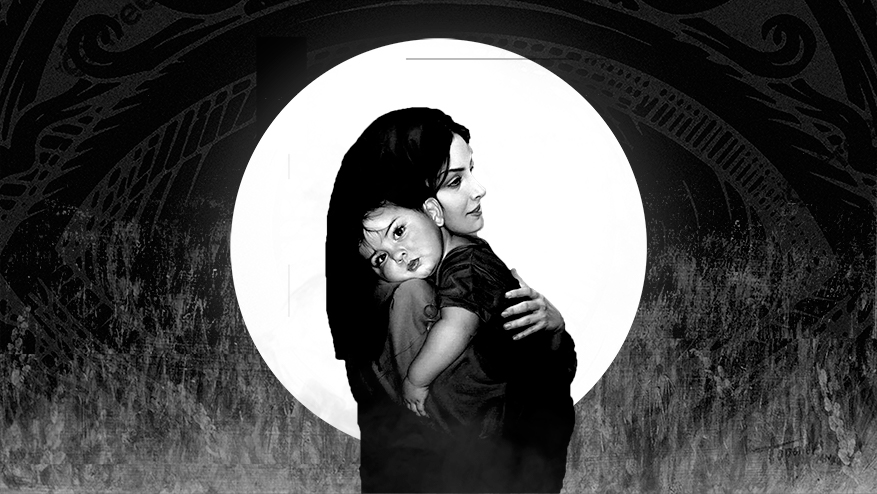
Frazer’s ethnographic reports show how in the paradigm of magic two separate, but similar phenomena (barren woman / barren garden) become united through the alchemy of the poetic imagination.
But this is more than ‘mere‘ poetry or ‘mere‘ imagination. It is a deeper way of seeing which goes beyond the surface particularities of phenomena – right to their archetypal essence.
The challenge of fertility, of continuing the vital cycle, of passing life on – is a challenge for the entire universe. Whether it is your garden or your wife, your nation, or your creativity, it is always the same struggle, the same ‘rage against the dying of the light‘.
Where science divides, magic unites. Where science treats the symptom (your garden gets a fertilizer, your wife gets IVF, etc.) – magic goes for the root cause.
The Great Lie
Here you may object: ‘But am I really to believe that a bunch of men and women rolling over a field is more effective for agriculture than our best modern fertilizers?’
I suggest that to ask this question is to miss the point. It is like taking a fish out of the water and placing it next to a rabbit to see who can run the fastest.
Frazer calls magic the ‘bastard sister of science,’ but in this, the prejudices of his age have blinded him to a better understanding.
Magic never tries to be science. It never works on the part, but always on the whole. It is neither psychological nor empirical – for it sees inner and outer as part of the same continuum. The effects of magic cannot be measured for they do not belong to the language of measurement. Where science sees quantities, magic sees qualities. Magic can only be experienced through the heart, and when it is, there can be no doubt as to its effectiveness.
If this sounds like a convenient cop-out, that’s because it is.
We do need to cop out, to step out of the confines of science if we wish to understand magic. With all its undeniable blessings, the Pandora’s box of science has come with a terrible curse at its bottom. This curse is the conviction that the world can and must be known only through reason.
To secure its dominion over us, scientific materialism has bred modern culture on a Great Lie. It has infused this Lie so deeply into our being as to make it part of our very substance. Perhaps this Lie has been a necessary evil for a greater good – but it has also alienated us from our very selves.
The Great Lie goes like this: ‘What cannot be understood – cannot be real.‘
Is this what Nietzsche meant when he cried out we have killed God?
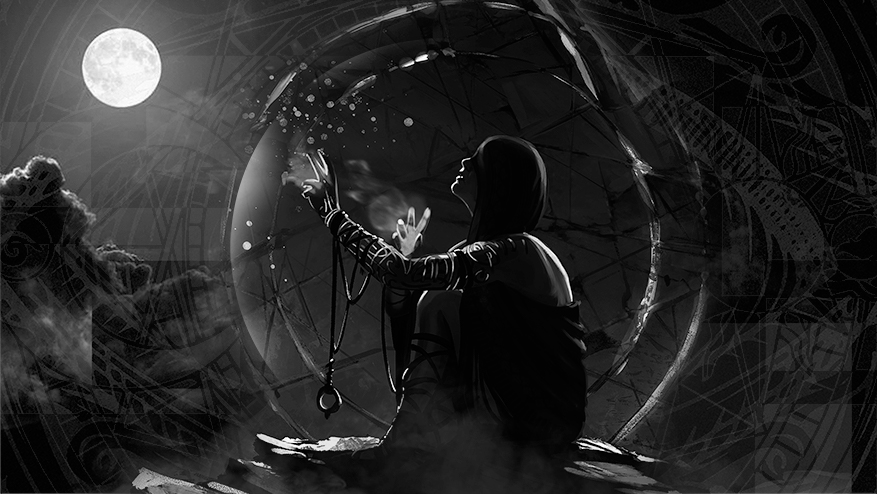
Alma Mater
But magic is not simply an ‘alternative’ to science. It is also its ancestor.
In the intuitive leaps of magic, we find man’s first calls out into the dark mystery of nature. Calls that still reverberate in the cold, pristine monument of science.
Yes, science speaks in numbers and magic speaks in rhymes – but what is important is the act of speaking itself.
It is by no means obvious that nature has a nature. We should not underestimate the genius of our ancestors simply because we are standing on their shoulders. The crazy idea that the world is moved by hidden laws which form a language – and that man can learn this language – is more revolutionary than any innovation in recorded history. And it was brought to light by the great magicians of ages we have forgotten.
Parallax
In the final analysis, magic is no more opposed to science than the view from my left eye is opposed to the view from my right eye. It is simply a different place from which to perceive the mystery of the universe.
A change of perspective is always a sacrifice. We let go of the familiar in the hope of seeing something new. Something, perhaps, that will renew the awe we have lost in our cyclopean, monochrome perception of life.
Something that will revive our spirit.
I believe it is worth it to take the risk and open our long-forgotten eye for the poetics of life. Our eye for the magic of nature, for fate, and for the nebulous forces within and around us.
Rare spirits such as the psychologist Carl Jung show what creative energy comes with the parallax effect of perceiving the world with both eyes open. Overlayed together, the heart and the mind, magic and science, rhyme and reason – can open the doors of our perception to new vistas of understanding. Vistas that – like our optic perception of depth – appear only when we look at life from multiple persepctives at once.
But to do this we must cleanse ourselves from the Great Lie.
No more than a whisper is necessary. A humble, but sincere whisper to our own souls:
‘What cannot be understood – must be felt.’

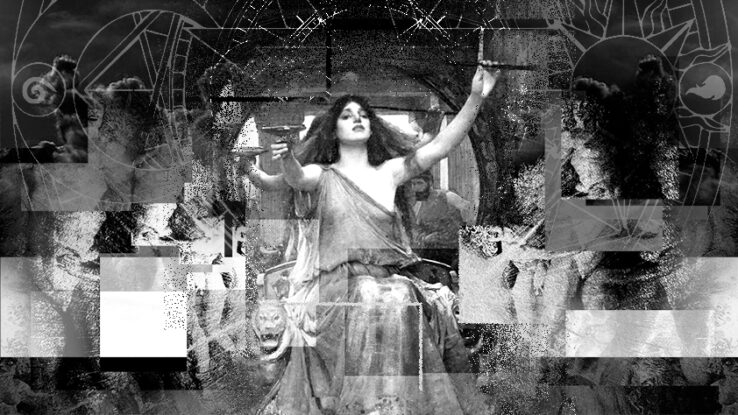
1 comment / Add your comment below